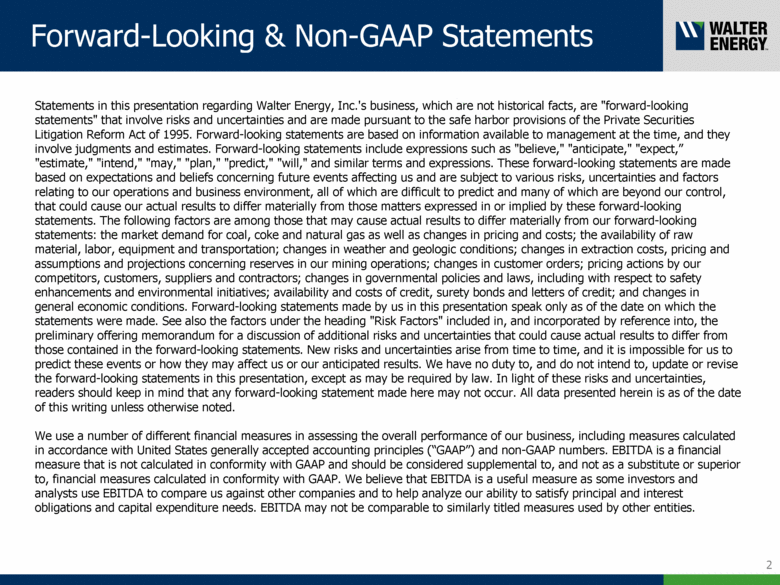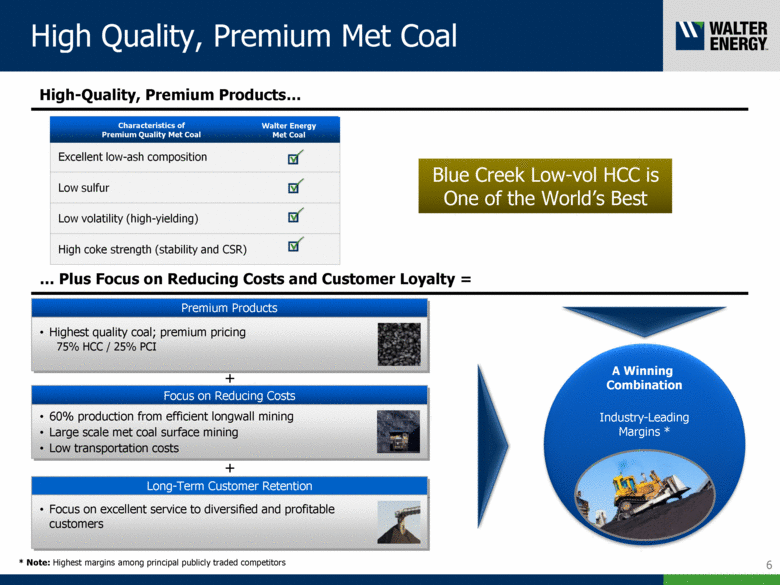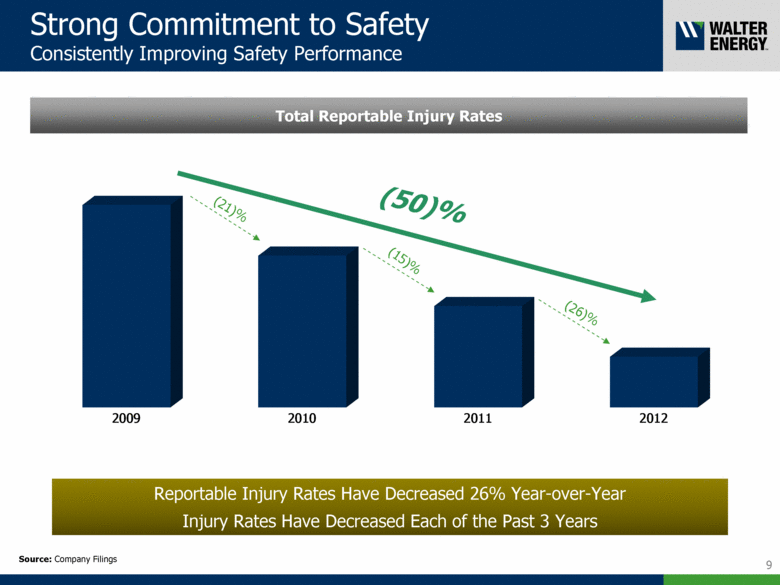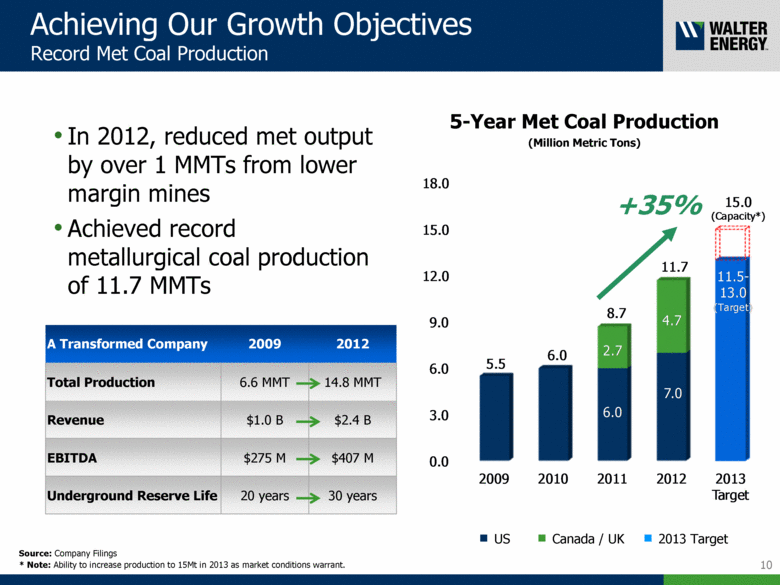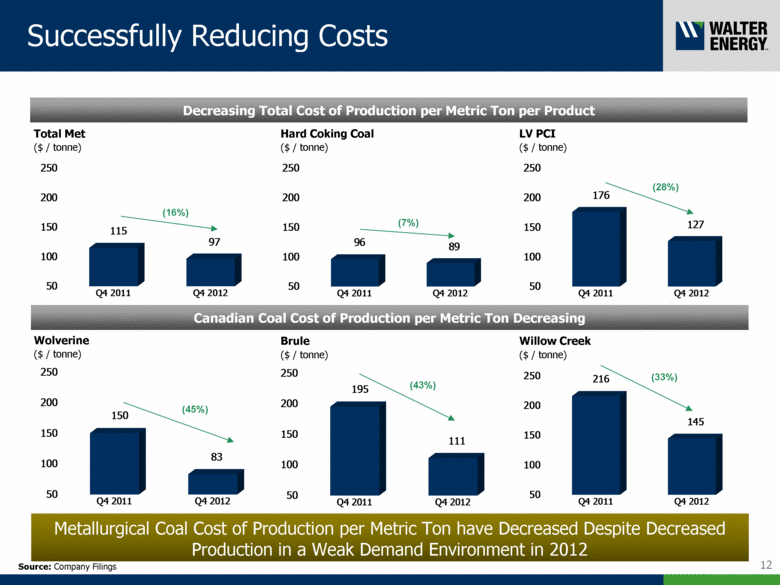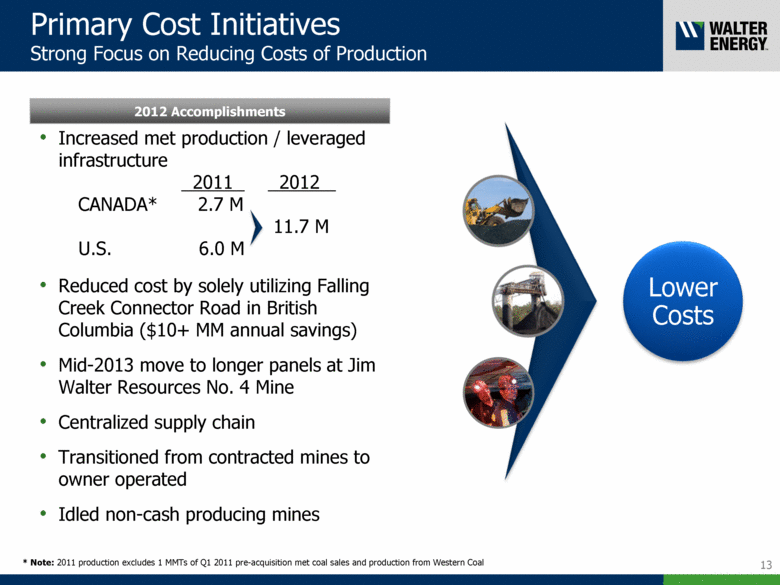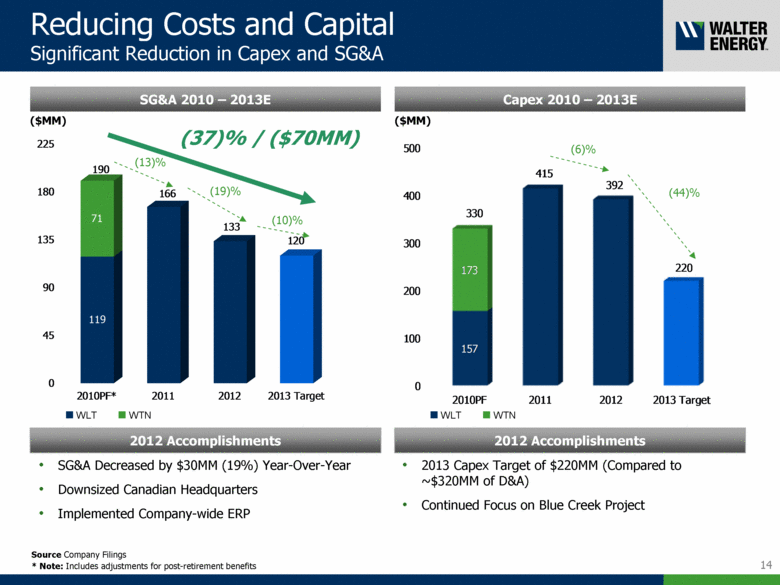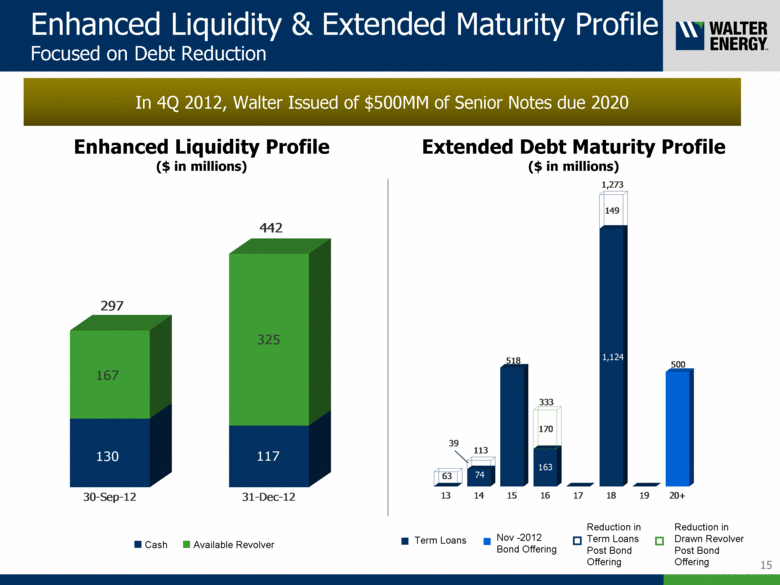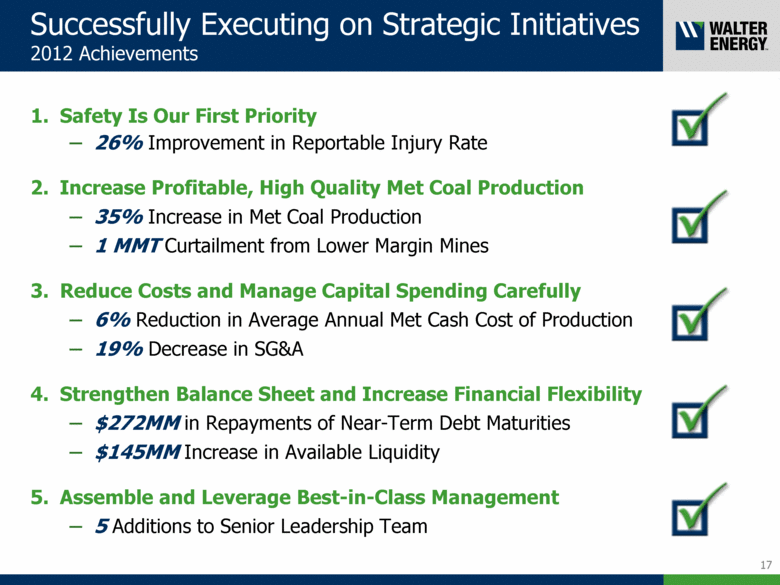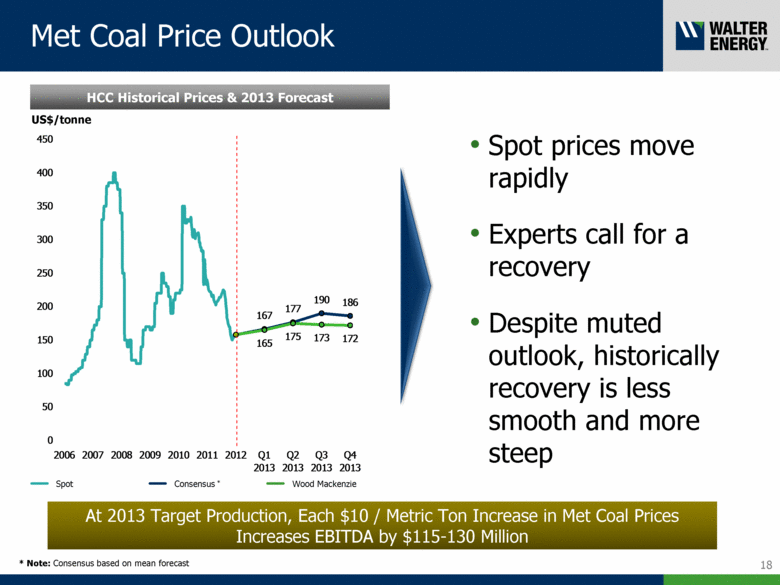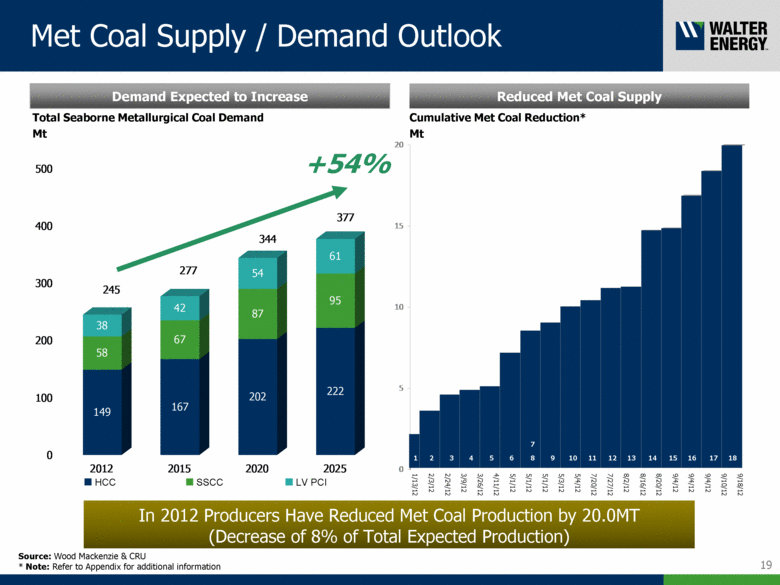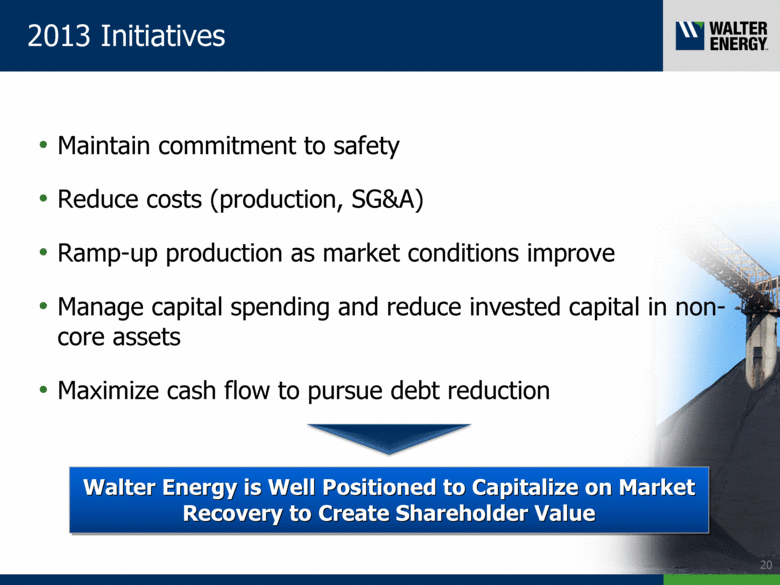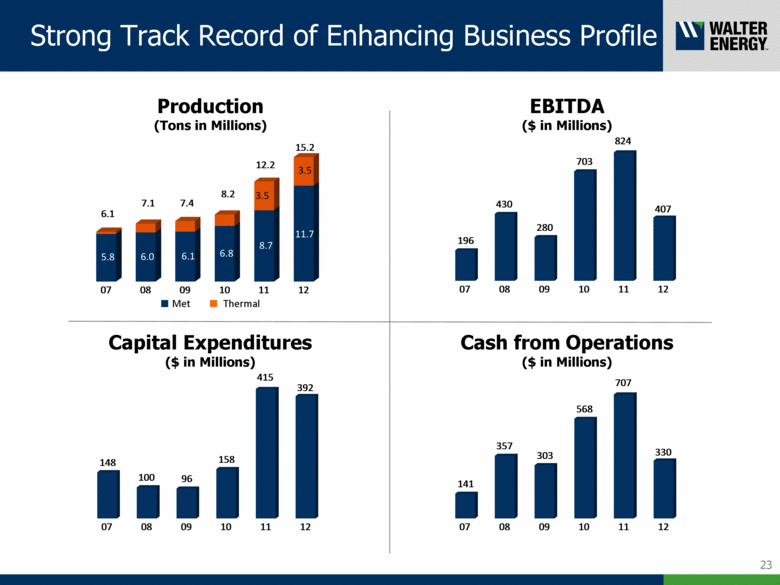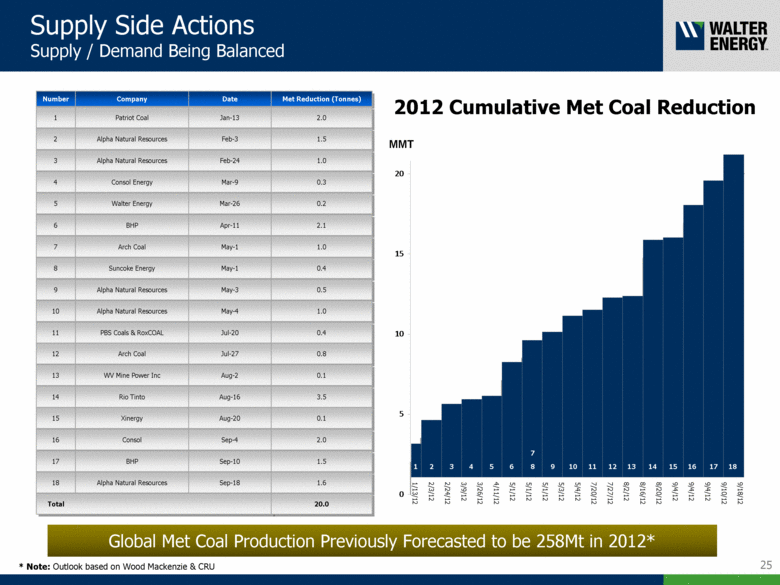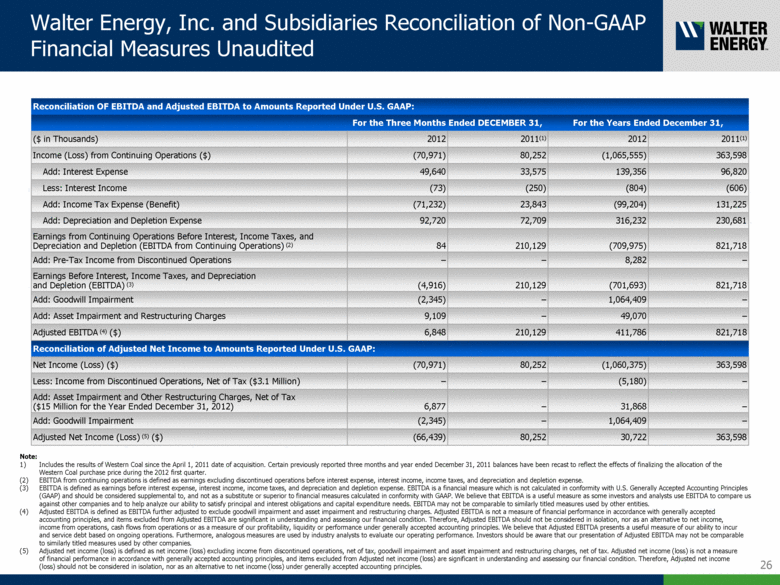
| Walter Energy, Inc. and Subsidiaries Reconciliation of Non-GAAP Financial Measures Unaudited Reconciliation OF EBITDA and Adjusted EBITDA to Amounts Reported Under U.S. GAAP: For the Three Months Ended DECEMBER 31, For the Years Ended December 31, ($ in Thousands) 2012 2011(1) 2012 2011(1) Income (Loss) from Continuing Operations ($) (70,971) 80,252 (1,065,555) 363,598 Add: Interest Expense 49,640 33,575 139,356 96,820 Less: Interest Income (73) (250) (804) (606) Add: Income Tax Expense (Benefit) (71,232) 23,843 (99,204) 131,225 Add: Depreciation and Depletion Expense 92,720 72,709 316,232 230,681 Earnings from Continuing Operations Before Interest, Income Taxes, and Depreciation and Depletion (EBITDA from Continuing Operations) (2) 84 210,129 (709,975) 821,718 Add: Pre-Tax Income from Discontinued Operations – – 8,282 – Earnings Before Interest, Income Taxes, and Depreciation and Depletion (EBITDA) (3) (4,916) 210,129 (701,693) 821,718 Add: Goodwill Impairment (2,345) – 1,064,409 – Add: Asset Impairment and Restructuring Charges 9,109 – 49,070 – Adjusted EBITDA (4) ($) 6,848 210,129 411,786 821,718 Reconciliation of Adjusted Net Income to Amounts Reported Under U.S. GAAP: Net Income (Loss) ($) (70,971) 80,252 (1,060,375) 363,598 Less: Income from Discontinued Operations, Net of Tax ($3.1 Million) – – (5,180) – Add: Asset Impairment and Other Restructuring Charges, Net of Tax ($15 Million for the Year Ended December 31, 2012) 6,877 – 31,868 – Add: Goodwill Impairment (2,345) – 1,064,409 – Adjusted Net Income (Loss) (5) ($) (66,439) 80,252 30,722 363,598 Note: 1) Includes the results of Western Coal since the April 1, 2011 date of acquisition. Certain previously reported three months and year ended December 31, 2011 balances have been recast to reflect the effects of finalizing the allocation of the Western Coal purchase price during the 2012 first quarter. (2) EBITDA from continuing operations is defined as earnings excluding discontinued operations before interest expense, interest income, income taxes, and depreciation and depletion expense. (3) EBITDA is defined as earnings before interest expense, interest income, income taxes, and depreciation and depletion expense. EBITDA is a financial measure which is not calculated in conformity with U.S. Generally Accepted Accounting Principles (GAAP) and should be considered supplemental to, and not as a substitute or superior to financial measures calculated in conformity with GAAP. We believe that EBITDA is a useful measure as some investors and analysts use EBITDA to compare us against other companies and to help analyze our ability to satisfy principal and interest obligations and capital expenditure needs. EBITDA may not be comparable to similarly titled measures used by other entities. (4) Adjusted EBITDA is defined as EBITDA further adjusted to exclude goodwill impairment and asset impairment and restructuring charges. Adjusted EBITDA is not a measure of financial performance in accordance with generally accepted accounting principles, and items excluded from Adjusted EBITDA are significant in understanding and assessing our financial condition. Therefore, Adjusted EBITDA should not be considered in isolation, nor as an alternative to net income, income from operations, cash flows from operations or as a measure of our profitability, liquidity or performance under generally accepted accounting principles. We believe that Adjusted EBITDA presents a useful measure of our ability to incur and service debt based on ongoing operations. Furthermore, analogous measures are used by industry analysts to evaluate our operating performance. Investors should be aware that our presentation of Adjusted EBITDA may not be comparable to similarly titled measures used by other companies. (5) Adjusted net income (loss) is defined as net income (loss) excluding income from discontinued operations, net of tax, goodwill impairment and asset impairment and restructuring charges, net of tax. Adjusted net income (loss) is not a measure of financial performance in accordance with generally accepted accounting principles, and items excluded from Adjusted net income (loss) are significant in understanding and assessing our financial condition. Therefore, Adjusted net income (loss) should not be considered in isolation, nor as an alternative to net income (loss) under generally accepted accounting principles. 26 |

